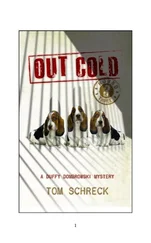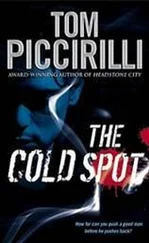'The wilderness is where the inspiration for the first brithem laws arose,' he once told me, and 'natural justice' was a phrase he often used. 'It is a heavy responsibility to interpret the Fenechas, the laws of freemen. False judgements ruin men's lives and the evil consequences live on for generations. So I need to return regularly to the ultimate source, to the rhythms and mysteries of Nature.' He smiled his self-deprecating smile and mocked himself. 'How much easier if I could wear one of those heavy iron collars which the first brithemain had around their necks. If they made a poor judgement the collar tightened until they could scarcely breathe. When they amended the judgement to make it fair, the collar loosened.'
'But how could the early brithemain make false judgements?' I asked him. 'The monks at St. Ciaran's told me that the brithemain were really drui in secret, and communed with evil spirits and, besides being able to fly through the air, made profane prophecies. So they must have been able to foresee the future and would have known if they were in error.'
'It is true that in the earlier days some drui were trained as seers and soothsayers,' he answered. 'But those days are gone, and much of what appeared to be their prophesy was really only a prolonged observation. For example, by watching the animals in the forest I can foretell the coming weather. Those who study the movement of the stars learn how they behave. From that knowledge they can predict events like the eclipses of the sun or moon.
Such predictions impress people who fail to notice the signs or who do not understand the value of accumulated wisdom. Six hundred and thirty years is the length of time our star watchers use when measuring a single cycle of star movements in the sky. You can imagine the power of so much stored wisdom.'
Eochaid's journeys were determined by his own celestial calendar. The first occasion he left the forest after my arrival was shortly before the start of the thirteenth month of his year. A thirteenth month, of course, has no equivalent in the White Christ calendar, but for those who measure time by the waxing and waning of the moon it obviously does exist and occurs three or four times every decade. Eochaid called it the elder month, and he invited me to accompany him on his journey. It would be a tiring walk, he warned, but he had a duty to perform for a confederation of four tuaths some distance to the north-west. The people of this region were so respectful of the Old Ways that they had named their territory Cairpre, to commemorate one of the greatest drui, reputedly the son of the God Ogmius.
It was indeed a long walk, six days' striding across an increasingly bleak countryside of moorland and rock to our destination, a substantial crannog. At Eochaid's suggestion I took along my battered leather satchel with a spare change of clothes for myself, a white gown belonging to Eochaid, and a small supply of dried nuts and grain for food. Eochaid himself carried nothing of value, no symbols of his profession. He had only a small cloth bag slung over his shoulder and a sharp sickle, which he used to clear a space in the undergrowth when we slept out in the open or to cut medicinal herbs that he noticed growing by the wayside. Plants which heal, he explained, are available at all times of the year if you know where to look. Some are best gathered in the spring when their sap is full, others when they show their summer flowers, and several when their roots are dormant or they are bearing autumn fruit. On that journey he was collecting the roots of burdock thistles for making an infusion to treat skin diseases and boils, and with the point of his sickle he dug up the roots of something he said was a cure for ringworm. He called it cuckoo plant.
'That broken hand of yours,' he commented to me one day, 'would have healed much quicker if you had known how to treat it.'
'What should I have done?'
'Found the root which people call boneset or knitbone — it's very common - then made a paste and applied it to the wound as a poultice. It would have reduced the swelling and the pain. The same paste, dissolved in water, can be used as a treatment for diseases of the stomach or even given as medicine to children who have whooping cough.'
With his medical skill Eochaid was welcome at every settlement we passed. He seemed to be able to produce a remedy for any malady, even if it was severe. He gave an invalid, who was coughing as if to burst his lungs, an oily drink made from the fruit of water fennel, and an unfortunate who suffered from fits was calmed with an extract of all-heal root. "Valerian is another name for it,' Eochaid said to me as he prepared the fetid-smelling drug, 'which comes from the Latin "to be in health". But you want to be careful with it. Too big a dose and you'll put a person to sleep for good.' I was about to ask Eochaid how he came to know Latin, when we were interrupted. A distraught mother arrived to say her child was suffering from a very sore throat, and Eochaid despatched me to fetch haws from a whitethorn bush we had seen not far back down the road so she could make hawthorn broth for the youngster.
The inhabitants of the hamlets and villages treated Eochaid with a deference bordering on awe. If we needed shelter, we were always given a place of honour in the home of the leader of the community, and no one ever asked where we were going or what our business was. I commented on this to Eochaid, and the fact that he carried no weapon and did not ask permission of any of the tuath people to cross their lands, though this would have been a dangerous act of folly for any stranger. He answered me that the brithemain were privileged. They could walk the trackways and be certain that they would not be impeded or molested, even by brigands. This immunity, he explained, arose from a belief among the country people that to harm a brithem would result in terrible misfortune. 'It's one of the beliefs which date back to the early days of the drui, and which the Christian priests, though they complain that the drui were sent by the devil, have been shrewd enough to turn to their advantage. They now say that harming a priest will also bring a curse on the evildoer, and they sometimes carry and display holy relics to strengthen the aura of their protection. Mind you,' he added, 'if the relic is too valuable, that doesn't always prevent thieves from robbing them.' Thinking of the ornamental stones that I had prised from the big Gospel book and still carried, I said nothing.
The chieftains of the four allied tuaths were waiting for Eochaid to decide their backlog of legal cases. Having seen how the Icelanders dispensed justice at their Althing, I was interested to observe how the Irish applied their laws. The lawsuits were heard in the crannog's council hall, where Eochaid sat on a low stool flanked by the chieftains. They listened to what the plaintiffs had to say, then called on the defendants for their versions of events. Sometimes a chieftain would ask a question or add a piece of corroborating detail, but Eochaid himself said very little. Yet, when the moment for a judgement arrived, the entire assembly would wait for the brithem to pronounce. Invariably Eochaid began his remarks with a reference to earlier custom in a similar case. He would quote 'the natural law', often using archaic words and phrases that few of his listeners could comprehend. Yet, such was their esteem for brithem law that they stood respectfully and they never disputed his decision. Eochaid rarely imposed a sentence of imprisonment or physical punishment. He dealt mainly in compensation. When he found a genuine offence had been committed, he explained its gravity and then suggested the correct compensation that should be paid.
The first cases he heard were fairly trivial. People complained of horses and oxen that had broken into neighbouring pastures, pigs trespassing on a vegetable patch, and even the case of a pack of hounds, not properly restrained, which had entered a yard and defiled it with their droppings. Patiently Eochaid listened to the details, and decided who was at fault - the landowner for not fencing his property more securely, or the animals' owner for allowing the creatures to stray. Then he would deliver his judgement. The pigs' owner was obliged to pay a double fine because his animals had not only eaten the vegetables but had rooted up the earth with their snouts and this would make the garden more difficult to restore. The man complaining about a neighbour's cattle in his field lost his case because he had failed to build his fence to the approved height and strength to stop the oxen pushing through it. In the case of the errant dogs, Eochaid found for the plaintiff. He recommended that the dogs' owner pick up the droppings, and then produce restitution in the form of the same amount of butter and dough as the quantity of dog turds retrieved. This particular arbitration raised broad smiles of approval from his audience.
Читать дальше








